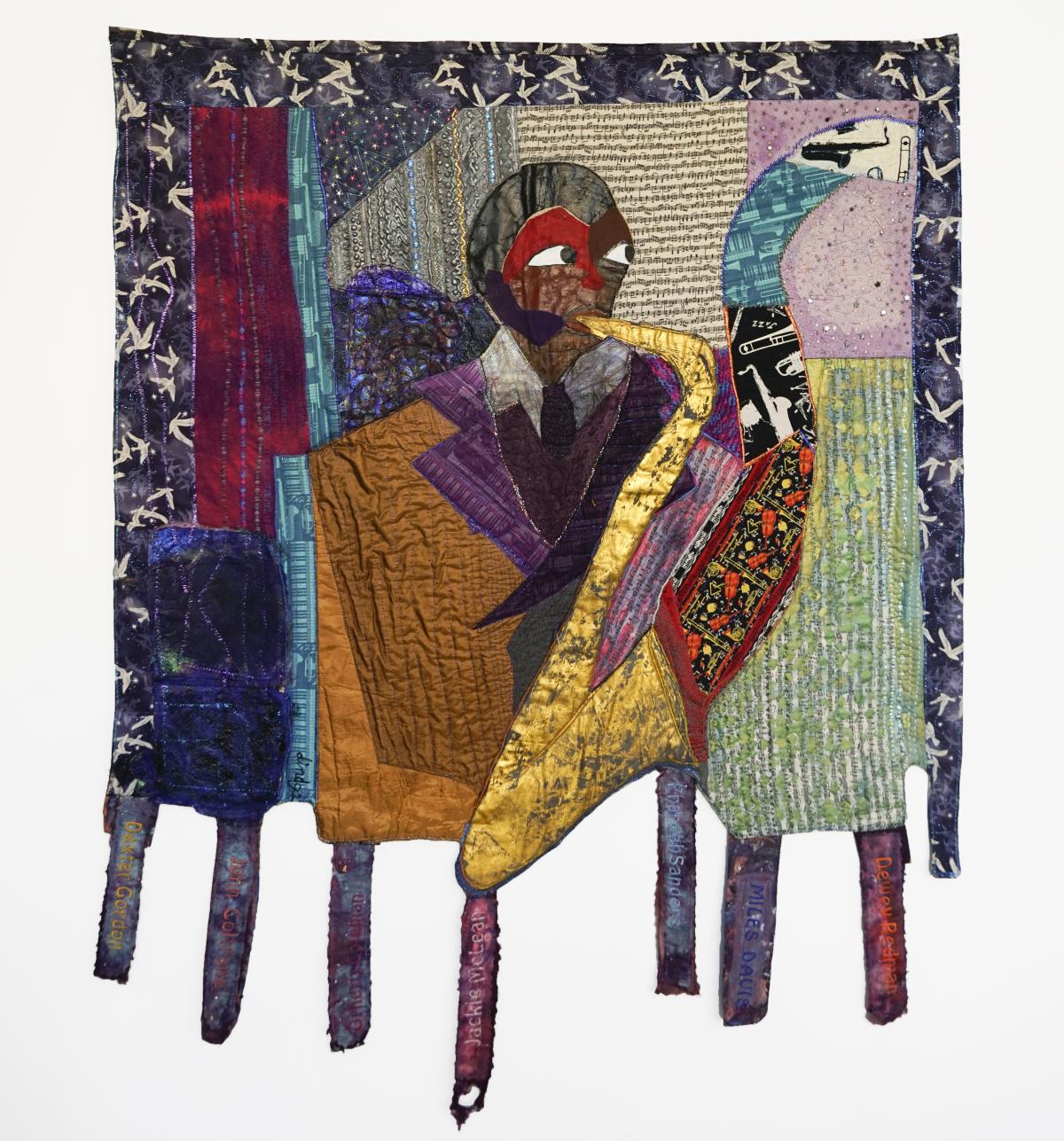Charlie Parker and Some of the Amazing Musicians He Influenced
Dindga McCannon ( painting from 1983, mixed media quilt from 2010 )

Born and raised in Harlem and the Bronx, Dindga McCannon remembers listening to live music through her open bedroom window. Music remains a regular theme in McCannon’s oeuvre and is the primary focus of works such as Charlie Parker and Some of the Amazing Musicians He Inspired.
For this quilt, which employs McCannon’s signature vivid patterns and colors, she incorporated a painted canvas into a quilted piece rather than painting directly onto it. McCannon used gold foil to render Charlie Parker’s saxophone and a selection of fabrics with musical motifs that she acquired over 20 years to create its border. The birds that frame the quilt allude to Parker’s nickname, “Bird,” referencing his musical ability to “soar.”
This work, acquired through the Director’s Discretionary Fund in 2020, represents the museum’s shift toward collecting contemporary art and mirrors the overdue rise in interest in McCannon’s work. McCannon was one of only two women included in the Weusi Collective, established in 1965, that was dedicated to creating dynamic, idiosyncratic depictions of Black life.[1] In 1971, she was a founder of Where We At, a Black women’s artist collective forged in part in response to the constant racial and sexist discrimination they faced in the art world.[2]
“In my art, I like to take a vague idea and use whatever materials speak to me … as you begin to work, certain things pop in your face and say ‘it’s time for me now.’”—Dindga McCannon
Text by Camille Brown as part of the Seeing U.S. Research Project
[1] Jillian Steinhauer, “The World Catches Up With Dindga McCannon,” New York Times, September 10, 2021; and Weusi Artist Collective.Gallery: 1965–Present, https://www.weusiartistcollective.gallery/home, accessed November 10, 2023.
[2] Holland Carter, “To Be Black, Female and Fed Up With Mainstream,” New York Times, April 20, 2017.